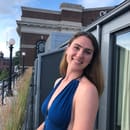First and foremost, I was inspired to write this article after seeing a classmate’s Instagram post about her experience with monolids. Check it out at @comical.julia!
I cannot tell you the amount of times my mother has told me I looked American (read: white) and how I should be thankful for her genes. Of course, this is attributed to my double eyelids, which I inherited from her, but works in conjunction with my big eyes, long nose, wavy hair, and tanned skin. Despite what my looks may say, I am a full, native Korean.
Growing up being one of the only Asians in my community (i.e. neighborhood, school, swim team), I was insecure of my Asianness. Even though I looked more white to Asians, everyone else still saw me as Asian, and for a long period of my life, I hated that. I found myself constantly comparing myself to my white classmates and looking up to white celebrities. How come my nose isn’t as pointed and my nose bridge isn’t as raised? Why do my eyes slant upwards? Why are my eyelashes so short? I became so obsessive that I began to do research about plastic surgery, just to find that South Korea is the capital for plastic surgery, the most common surgery being double eyelid surgery. In South Korea, it is even common for some parents to encourage their children to get plastic surgery once they reach a certain age. Essentially, people think you’re weird if you haven’t had plastic surgery, which is the opposite in the US.
As a result of my research, I came to the conclusion that many of these physical differences among races ultimately lie in bone structure, something that is inherently a part of us and not just skin-deep. After exhausting the internet for before and after pictures of plastic surgeries I was interested in, I decided that, being too young and broke to do anything about it, I should just accept myself for what I looked like. Instead of hating my slanted eyes, I began to appreciate my high cheekbones that came with them.
Somehow, it all came full circle when, this past summer, I got an internship at the Seoul National University Bundang Hospital with the Plastic and Reconstructive Surgery Department. Before I go into detail about that experience, I want to talk about some observations I made being back in Korea after 9 years with my sister who had just graduated college. My sister, unlike me, has a more traditional Asian appearance, including monolids and a flatter nose. With that being said, we both had distinct experiences in Korea. For example, when we visited our family, they commented on how “beautiful” and “American-looking” I was, even going so far as to saying I looked better than Korean models. On the other hand, they commented on how much my sister had grown into a woman and talked about her post-grad plans.
Once my sister returned to the US, I started my internship. Off the bat, the doctors I interacted with made the assumption that I was mixed race before I had to clarify. Specifically, the researchers I worked with were very interested in my appearance and were surprised that I had not had plastic surgery. I had returned to my home country but somehow felt like a foreigner. It almost seemed like there was a border between me and other Koreans. Everywhere I went, I was complimented for how white I looked. But why? Why is whiteness the goal, even in a country where white people are the minority? I had not idea whether to thank them for their compliments or to engage in conversation about beauty standards, which my Korean would not have allowed me to do, so I often just replied with a smile and a laugh.
Besides my personal experience at my internship, I had mixed feelings about seeing patients undergo plastic surgery, especially at local plastic surgery clinics, not because of the procedures but because of the patients’ motivations. It hurt me to see so many people put themselves through pain to obtain this imposed beauty standard (by whom?) of whiteness and youth. Did I only feel this way because I was “privileged enough” to have been born with what they were trying to obtain? At the same time, I felt like a hypocrite for feeling this way because I was in their place at one point (and still haven’t completely left it).
On campus, and throughout my life, I have felt some tension between me and other Asians. I’m not sure whether to attribute it to the fact that I don’t like to surround myself with only Asians, like some people like to do, or whether it’s an unspoken knowledge that I look more white and therefore am not the same. Regardless of what it is, I want to make more of an effort to support my fellow Asians that may be feeling insecure about their appearance because I’ve been there. Everybody deserves to be able to love themselves for who they are.
I often wonder how different my life would’ve been if my mother had taught me to love myself for who I was instead of my white-like appearance. I guess I’ll never know, but what I do know is that, if I ever have children of my own, I will teach them to appreciate their Korean identity and all of their “imperfections.”

